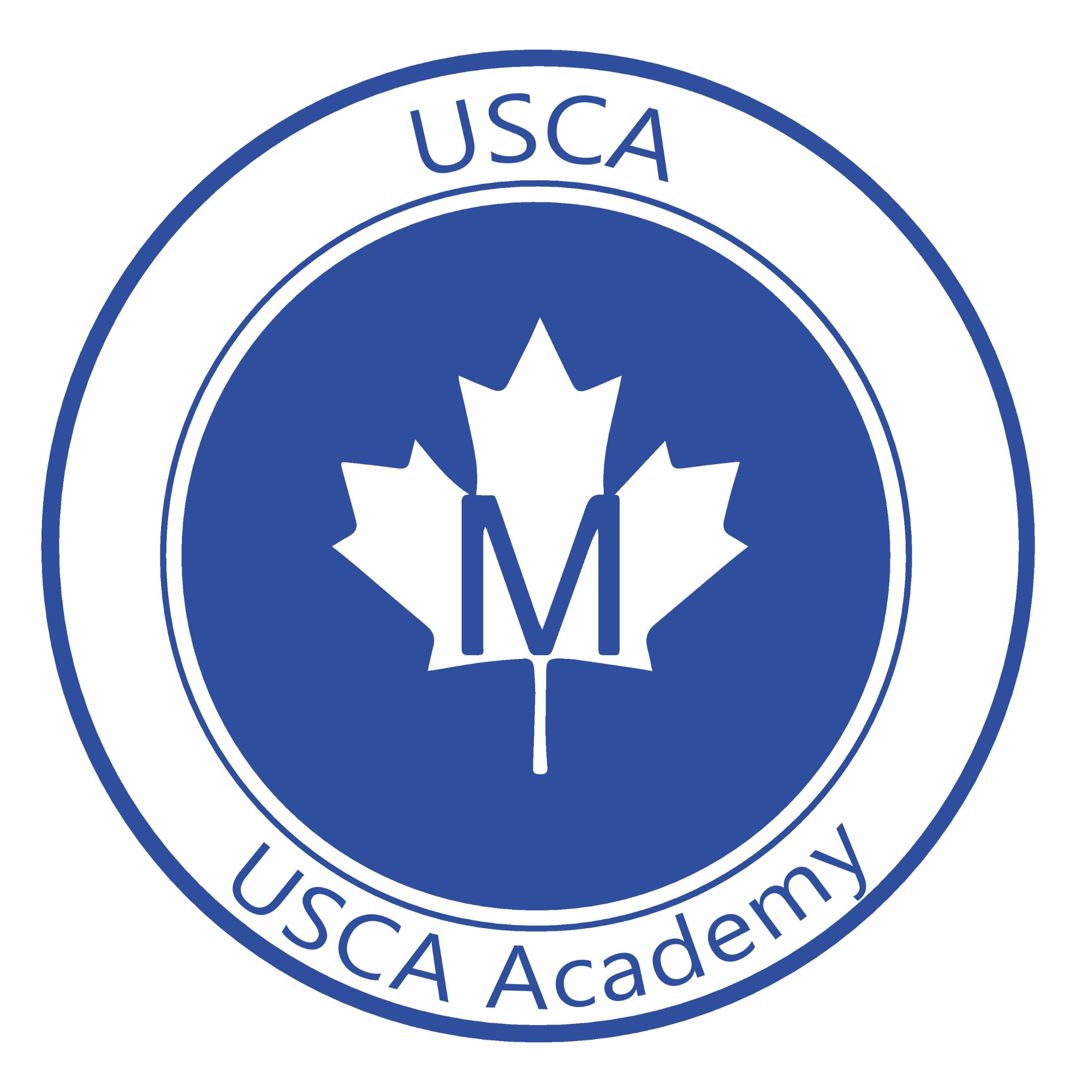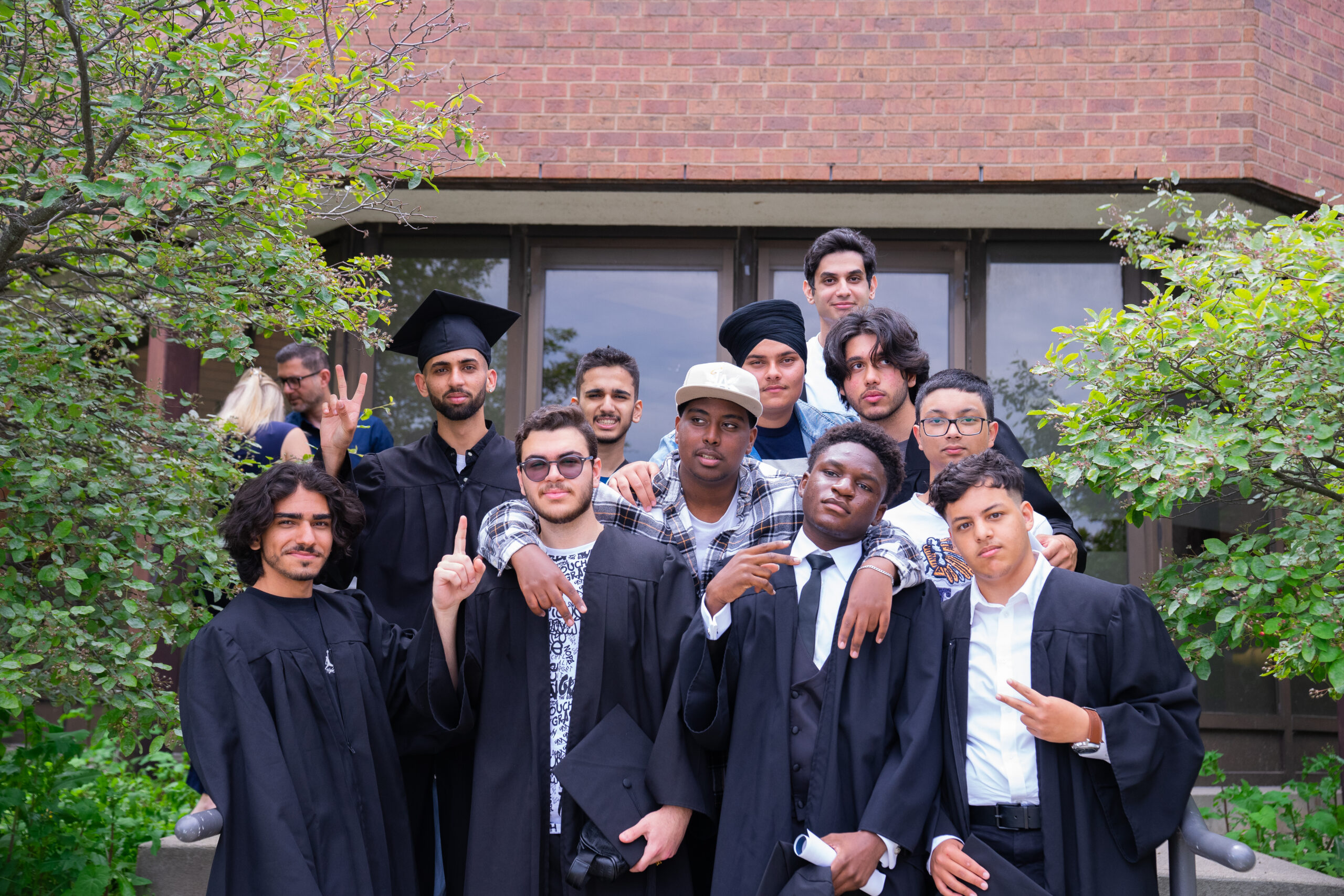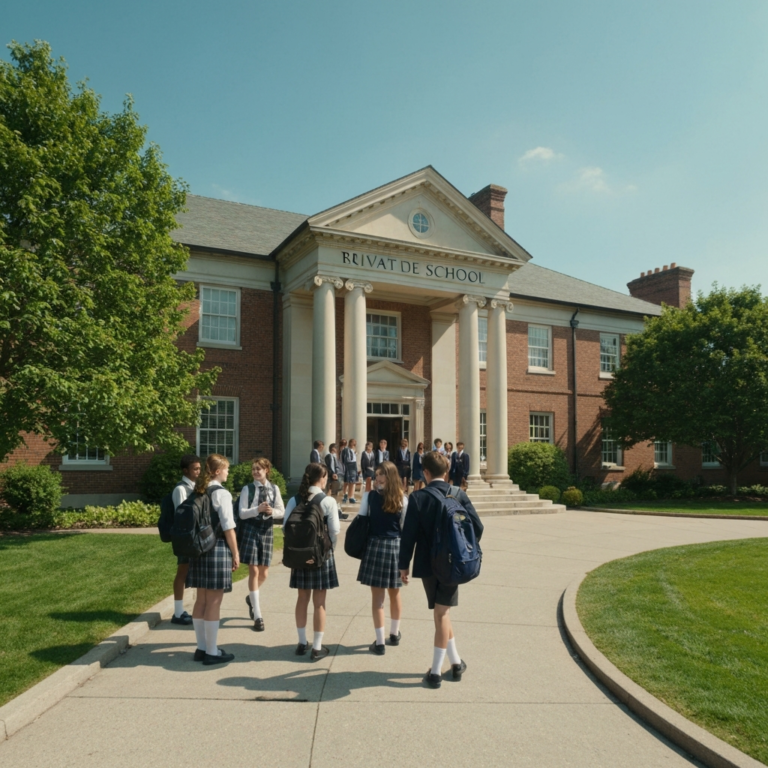Over 642,000 international students chose Canada , with 38% enrolling in diploma programs(IRCC 2026). Its multicultural environment, world-class education system, and working opportunities present a solid base for the youth seeking to acquire practical and academic skills. Diploma courses in Canada for international students will be your best fit if you are looking for an affordable, career-oriented academic delivery option.
Whether you’re a recent high school graduate or a professional seeking upskilling, this guide covers everything: diploma types, top colleges, costs, and post-study pathways.
Diploma Courses in Canada for International Students: An Overview
Canada offers a diverse range of master’s programs for international students across top-ranked universities known for academic excellence and research opportunities. Canada is a top destination for international students seeking career-focused, affordable, and globally recognised education. Diploma programs in Canada offer a industry-aligned skill development experience tailored to industry needs, making them ideal for students aiming to enter the workforce quickly or pursue further academic pathways.
Get ready to succeed with expert resources and guidance to help you prepare for uni academically, emotionally, and practically. Typically offered by colleges and select universities, diploma programs are available in a wide range of fields, including business, engineering, healthcare, IT, hospitality, and design. Most programs last 1 to 2 years, and many are structured to provide co-op (paid internship) opportunities, enhancing real-world exposure.
With a PGWP, diploma graduates can work in Canada for up to 3 years, allowing them to work in Canada for up to 3 years and may qualify for Permanent Residency (PR) through immigration programs like the Canadian Experience Class (CEC).
Whether you plan to stay and work in Canada or return to your home country, a Canadian diploma provides a strong foundation and a respected credential to boost your career prospects.
Types of Diploma Courses in Canada for International Students
Many Canadian universities offer 2-year master’s programs that provide in-depth academic training and practical experience for international students. As a former international student myself, I’ve seen how Alberta’s petroleum diplomas or BC’s animation programs open doors, here’s how to choose yours. From technical to creative and service-oriented areas, from Information Technology, Engineering and Healthcare to Graphic design, Hospitality Management and Early Childhood Education, these are areas that such programs will be trained in acquiring pragmatic, job-ready skills. Undergraduate diploma courses in Canada for international students combine academic knowledge with hands-on training.
| Field | Popular Diploma Courses | Duration | PGWP Eligible |
| Engineering & Technology | Mechanical Eng. Technician, Civil Eng. Tech, Petroleum Eng. Tech | 2–3 years | Yes |
| Business & Management | Business Admin, Project Mgmt, Supply Chain, Int’l Business | 1–2 years | Yes |
| Health & Life Sciences | Practical Nursing, Pharmacy Tech, Medical Lab Tech, Health Care Assistant | 1–2 years | Yes |
| IT & Computer Science | Computer Programming, Cybersecurity, Data Analytics, Web Development | 1–2 years | Yes |
| Education & Community | Early Childhood Education, Social Service Worker, Educational Support | 1–2 years | Yes |
| Arts, Design & Media | Graphic Design, Animation, Game Design, Fashion Marketing, Photography | 1–2 years | Yes |
| Hospitality & Culinary | Culinary Mgmt, Hotel & Resort Mgmt, Baking & Pastry Arts | 1–2 years | Yes |
| Trades & Skilled Labor | Welding Tech, HVAC Tech, Automotive Service Tech, Electrical Techniques, Carpentry | 1–2 years | Yes |
Popular Fields for Diploma Studies in Canada
Some Canadian institutions accept alternatives to IELTS, such as TOEFL, Duolingo, or a previous degree in English, allowing international students to apply without IELTS. There are numerous diploma courses in Canada after 12th for international students across fields like business, IT, and healthcare.
Some of the highest sought-after fields of study for diplomas are:
- Business Administration
- Hospitality and Tourism Management
- Information Technology
- Engineering Technology
- Healthcare and Medical Sciences
- Graphic Design and Multimedia
- Early Childhood Education
- Accounting and Finance
3 Highest-Paying Diploma Fields
- Cybersecurity (avg. salary: CAD 72,000/year)
- 52% growth in Alberta’s renewable sector (2026 Alberta Labour Market Outlook)
- Healthcare Support (Ontario needs 22,000+ workers)
These programs target Canada’s top labor shortages (e.g., healthcare workers needed in Ontario by 2026: 33,000+ jobs)..
Undergraduate vs. Postgraduate Diplomas: Understanding the Difference

| Feature | Undergraduate Diploma | Postgraduate Diploma |
| Eligibility | After Grade 12 | After a bachelor’s degree |
| Duration | 2-3 years | 1-2 years |
| Focus | Foundational knowledge | Advanced/specialised knowledge |
| Outcome | Entry-level jobs or further study | Skilled jobs or a pathway to PR/PG programs |
If coming after high school, look for diploma courses in Canada for international students after the 12th. For graduate learning a postgraduate diploma in Canada for international students is ideal. Explore cheap diploma courses in Canada for international students that offer quality education at budget-friendly rates.
Top Colleges and Universities Offering Diploma Courses
Canada boasts some great colleges and universities across the globe which award diploma programs for skill development and industry readiness. Well-known schoolhouses such as Humber College, Centennial College, Seneca College and George Brown College in Ontario are known for their ‘doing’ training and solid employer connections. British Columbia’s schools, such as Douglas College and Langara College, have great diploma options across disciplines.
Numerous universities (including Waterloo University and the University of British Columbia), offer specialised diploma and certificate courses, especially in business, technology and healthcare. These institutions are a blend of academic prowess and on-the-job exposure, equipping graduates with globally competitive skills. Many 2 year diploma courses in Canada for international students offer industry-relevant training with post-graduation work opportunities.
Leading Colleges for Practical and Career-Focused Diplomas
Specialized medical diploma courses in Canada for international students prepare you for roles in healthcare and clinical support. Canada’s public colleges are known for job-centred diplomas. Here are some top options:
- George Brown College (Toronto, Ontario)
- Centennial College (Toronto, Ontario)
- Humber College (Toronto, Ontario)
- Sheridan College (Oakville, Ontario)
- Seneca College (Toronto, Ontario)
- Fanshawe College (London, Ontario)
- British Columbia Institute of Technology (Burnaby, B.C)
These colleges work with industries to design programs to equip students with actual-world jobs. A post graduate diploma in Canada for international students provides specialized skills and improves job readiness in under two years
Universities Offering Specialised Diploma Programs
A post graduate diploma in Canada for international students can enhance your credentials and boost your career prospects.Other universities also run diploma programs in specialised areas such as healthcare, engineering tech and business analytics:
- University of Waterloo
- McGill University
- University of British Columbia
- Simon Fraser University
University diplomas might be more expensive, but they enjoy more academic prestige.
Understanding the Costs: Tuition Fees and Living Expenses
While the price of studying diploma courses within the Canadian borders for international students is different from institution to program as well as from area to area, it’s relatively cheaper than the degree programs. Typically, the tuition fees for diploma courses amount to CAD 10,000 – CAD 20,000 per year. Apart from tuition, students need to set aside money for living expenses, normally between CAD 10,000 and CAD 15,000 a year, including rent, food, transportation and personal expenses. Choose from a variety of diploma courses in Canada after 12th for international students in fields like business, technology, and healthcare.
While cities such as Toronto and Vancouver happen to have high living costs, small towns provide more affordable opportunities. Fortunately, many colleges offer scholarships, part-time work and financial plan advice to assist international students in better managing their expenses. Canada is home to several universities that offer high-quality yet affordable master’s programs for international students, making it a cost-effective study destination.
| Expense | Toronto (CAD/month) | Halifax (CAD/month) |
| Rent | 800–1,200 | 600–900 |
| Food | 300–500 | 250–400 |
Average Tuition Fees for Diploma Courses for International Students
Undergraduate diploma courses in Canada for international students offer practical training and pathways to further education or work permits.Mean Tuition fees for Diploma courses for international students with qualifications below.
Diploma tuition fees differ for institutions and programs. On average:
- Public colleges: CAD 13,000–20,000 per year
- Universities: CAD 20,000–30,000 per year
In various community colleges, especially in provinces such as Manitoba or Saskatchewan, there are some affordable diploma programs in Canada for overseas students.
Budgeting for Your Studies: Cost of Living in Canada
Depending on where you live, your living costs will vary. Here’s an approximate monthly budget:
- Housing: CAD 500–1000
- Food: CAD 300–500
- Transport: CAD 80–120
- Books and supplies: CAD 100–200
International students may spend between CAD 10,000–15,000 for living expenses during a year. Read more about this at Cost of Living for Students in Canada.
Applying to Diploma Programs: What You Need
To be eligible to take diploma courses in Canada as an international student, you’ll have certain academic and document requirements. Most, but not all, undergraduate diploma programs require high school (Class 12) as a qualification, but postgraduate diplomas require a bachelor’s degree in a relevant field. One of the most important parts of your application is English language proficiency, and the most reliable tests are IELTS (minimum 6.0 – 6.5 band), TOEFL or PTE scores, however, some colleges may cancel it if you studied in English-medium schools.
Apart from the transcripts and evidence of language test results, your application package should contain a valid passport, statement of purpose, letters of recommendation (if applicable), and financial proof that will prove why you need to stay and to pay the tuition fee. Always ensure that you meet the particular requirements of the college or province you want to join before you engage in the application.
Academic Requirements for International Applicants
Many colleges offer diploma courses in Canada for international students without IELTS, accepting alternatives like Duolingo or TOEFL.
- For undergraduate diplomas: High school transcripts (Grade 12)
- For postgraduate diplomas: Bachelor’s degree transcripts
- Minimum GPA: 60% and above is typically acceptable
English Language Tests: Accepted Options and Scores
If you’re in search of diploma studies in Canada for international students without IELTS, some colleges take such replacements as:
- TOEFL (iBT): 80+
- PTE Academic: 58+
- Duolingo English Test: 110+
In some colleges, English tests are even waived if one received a previous education in English.
Your Application Package: Essential Documents
- Academic transcripts
- English proficiency test score
- Statement of Purpose (SOP)
- Letters of Recommendation (LORs)
- Passport copy
- Resume (for postgraduate diplomas)
Find out how to apply to study in Canada.
Where to Study: Exploring Canadian Provinces for Diplomas
Ontario: Diploma Opportunities in Major Cities
Ontario has great colleges such as Seneca, Humber and George Brown. It’s home to business, tech and hospitality programs. The graduation prospects of graduates in the Greater Toronto area are great.
British Columbia: Western Coast Diploma Programs
BC has an expanding tech industry and a beautiful mix of cities, such as Vancouver. Colleges such as BCIT and Douglas College have diplomas in digital media, tech, and healthcare.
Alberta: Diplomas for Growing Industries
Calgary and Edmonton have NAIT and Bow Valley College as institutions with programs in petroleum, engineering and health sciences.
Discover Diploma Programs in Other Canadian Provinces
- Manitoba: Affordable living and practical programs at Red River College
- Nova Scotia: Marine, fisheries and hospitality specialisations
- Quebec: Bilingual diploma programs; French language is not always required.
Career Pathways After Diploma Courses in Canada for International Students.
Budget-conscious learners can find cheap diploma courses in Canada for international students that don’t compromise on quality. The Graduates can receive a Post-Graduation Work Permit (PGWP) valid up to 3 years with full-time work. Common job roles include:
- IT Support Specialist
- Junior Accountant
- Hospitality Supervisor
- Graphic Designer
- Lab Technician
- Business Analyst
Could a Diploma Make One Seek Further Studies?
Yes, diploma holders can:
- Getting an advanced diploma or bachelor’s degree.
- Enrol in postgraduate diplomas
- Move to universities using credits.
Some programs provide a co-op option, where you can work in a company and study at the same time.
Conclusion
Master’s programs in Canada for international students offer globally recognized degrees, research-driven education, and diverse specializations across top universities. A diploma course in Canada, for international students, can be a wise decision with the high potential of a successful career. Incredible opportunities for growth and stability include education from everywhere in the world and a culturally diverse experience.
If you want to join the workforce right away, continue your education, or apply for permanent residency, you can be spoiled for choice if you have an acclaimed diploma from a Canadian institution. Be sure to try several programs out, learn what it takes to do it, and get your documents ready well in advance to boost your chances of admission.
Limited Seats for 2026! Get Free Visa Assistance from RCIC-Certified Advisors Today. Apply Now for PGWP-Eligible Diplomas with our RCIC-certified advisors to shortcut your application process. Be ready for uni and check out good private high schools for an early entry to Canada.
Frequently Asked Questions About Diploma Courses in Canada for International Students
1. What diploma is in most demand in Canada?
Labour shortages in IT, healthcare, business analytics and early childhood education result in increased demand for diplomas in these fields.
2. Is it possible to get a job in Canada after a diploma?
Co-op placements are integrated into 74% of Ontario college diplomas (Colleges Ontario), providing guaranteed Canadian work experience
3. Can I get PR after a diploma?
Yes. A diploma in addition to work experience in Canada, can make you eligible to immigrate as part of the Canadian Experience Class.
4. Should I do a diploma after 12th?
Absolutely. Canadian diplomas of undergraduate studies provide practical skills and direct access to an occupation or further education.
5. Which diploma suits a foreign job best?
Diplomas offered in IT, business, hospitality, and healthcare are global, and they make one more employable in many countries.









